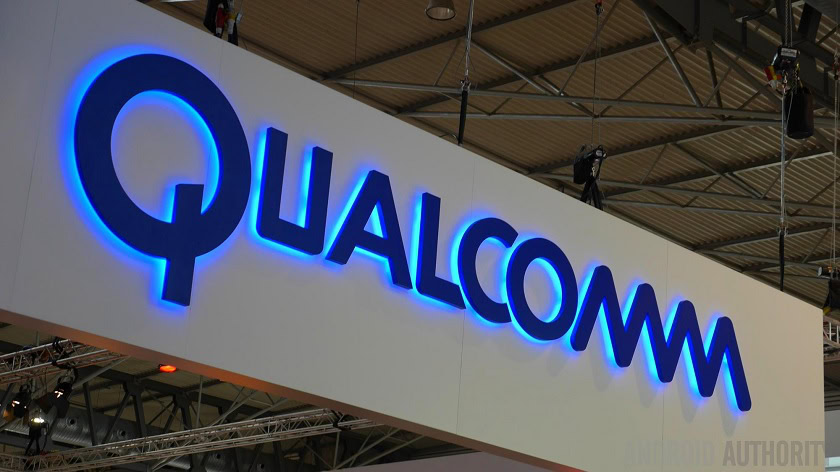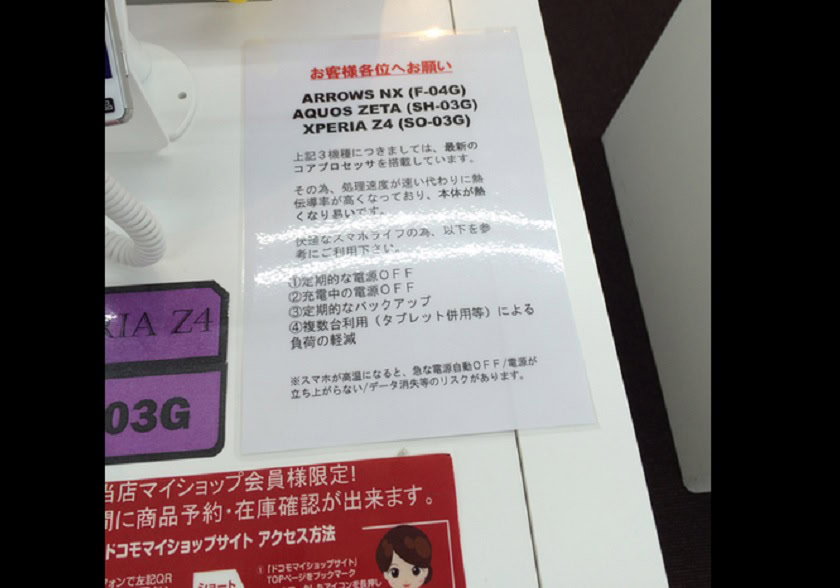Affiliate links on Android Authority may earn us a commission. Learn more.
Japanese carrier warns customers about Snapdragon 810’s overheating issues

The Snapdragon 810 overheats. No, the Snapdragon 810 doesn’t overheat. Yes, it does. No, it doesn’t. This back and forth dance has been going on for a long time now. There’s still a lot of controversy over the Snapdragon 810, but it seems that most of the overheating issues have been resolved at this stage — even if processor throttling is likely involved in order to keep the chip cool.
NTT DoCoMo’s warning isn’t proof of overheating, but more likely proof of how a bad reputation is hard to shake.
Just when you thought that the Snapdragon 810 drama was over, however, Japanese carrier NTT DoCoMo has decided to push the issue with a new warning poster. The poster was discovered at a NTT DoCoMo shop in Japan and warns about potential overheating issues for three Snapdragon 810-touting devices: the Sony Xperia Z4, the Sharp Aquos Zeta, and the Fujitsu Arrows NX.

The poster advises customers to do the following to prevent overheating and prolong the phone’s life:
- Periodically shut down the phone.
- Keep the phone off completely while charging.
- Regularly back up data on the phone.
- Reduce reliance on the phone by using a tablet or a PC when possible.
Not exactly a major vote of confidence in the Snapdragon 810 chipset. Honestly, NTT DoCoMo’s warning isn’t proof of overheating, but more likely proof of how a bad reputation is hard to shake. Whether the Snapdragon 810 is as bad as some have claimed doesn’t even matter anymore, the damage is done. Thankfully the Snapdragon 808 doesn’t seem to have the same negative heat-related reports, and here’s to hoping Qualcomm’s next generation of chips don’t run into the same issues (perceived or real).
Not exactly a major vote of confidence in the Snapdragon 810 chipset.
As for NTT DoCoMo’s warning? In actuality, the carrier is probably just protecting itself in the event something does go wrong, but such warnings certainly won’t help the carrier’s sales for these three phones. If NTT DoCoMo really thought that had a massive issue on their hands, odds are they’d recall the devices.
What do you think about the Qualcomm Snapdragon 810 drama that has unfolded this year? How do you feel about Qualcomm after the fiasco? Let us know your thoughts in the comments.
Thank you for being part of our community. Read our Comment Policy before posting.